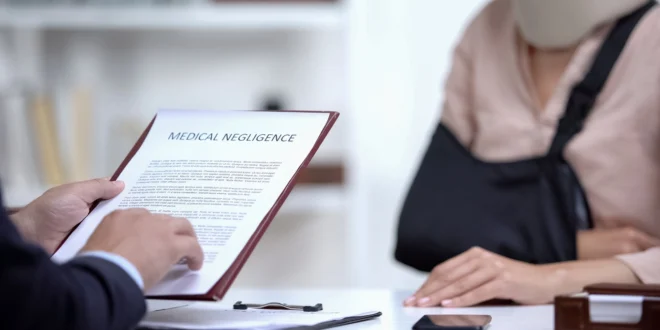When you’re a victim of personal injury, the last thing you want to do is go through the trouble and expense of proving your case. Unfortunately, the law only sometimes works in your favor.
Even if you’re in the right and the other party is clearly in the wrong, proving you’re owed compensation can be difficult. Here’s what you need to know.
What is Personal Injury Law?
When someone suffers a physical injury due to another person’s negligence or wrongdoing, the responsible party may be held legally liable for that injury. Personal injury cases can involve everything from car and truck accidents to medical malpractice. At a legal level, they are known as torts.
Personal injury law covers a wide range of legal issues, including defamation, assault, discrimination, and battery. In most cases, lawyers handle these types of cases on behalf of their clients. They act as advocates for the injured individual and ensure that their client receives a fair hearing.
They may even take the case to trial if an agreement cannot be reached with the defendant. In some cases, personal injury lawyers may also represent corporations in lawsuits brought by former employees who feel they were discriminated against in the workplace.
Proving a personal injury case is not always as simple as it sounds. Courts evaluate various factors to determine whether an injury is the defendant’s fault. Some of the most common factors include:
- the defendant’s duty of care
- whether the defendant breached this duty
- the defendant’s conduct caused the plaintiff’s injuries
- the plaintiff suffered damages as a result of the accident.
In addition, courts have their own set of rules and regulations governing these types of cases.
Establishing Liability

If you’re hurt in an accident and believe the accident was caused by negligence or misconduct by someone else, you have the right to sue that person for financial compensation.
However, to win your claim, you’ll need to prove that the defendant was responsible for your injuries and that his or her actions were the cause of your damages. (Note that this differs from determining liability in criminal cases, where the court determines guilt or innocence rather than assessing financial responsibility.)
In many cases, you can prove liability simply by presenting photographic evidence of the accident scene.
Gathering Evidence
Before you file a claim against the party responsible for your injuries, gathering evidence supporting your claim is critical. Depending on the circumstances of your accident, you may need to contact eyewitnesses, obtain police records, consult experts, and/or visit the scene of the incident to retrieve any pertinent evidence.
As you gather evidence in support of your claim, be sure to document everything related to your injuries and the accident in detail – including the date, time, place, and cause of the accident; the names and contact information of any witnesses; and a detailed account of your injuries and their estimated value. You should also keep copies of all documents related to your claim.
Preparing Your Claim

- Identify the defendant – Who is the person or organization that you believe is responsible for causing your injuries? In order to file a successful claim against the defendant, you must be able to name them by name in the lawsuit.
- Locate witnesses – Did someone witness the accident? If so, you may be able to use their testimony to support your claim against the defendant. It is also helpful to contact other people who were at the scene of the accident and ask if they can provide a statement about what happened.
- Contact a lawyer – If you plan to file a personal injury lawsuit against a defendant, you should speak with an experienced personal injury lawyer immediately to ensure your rights are protected. A lawyer can review the details of your case and help you understand all of your legal options so that you can make an informed decision regarding how to proceed. If you’re in the Chicago area, Rosenfeld Injury Lawyers is a reliable choice.
- Create a detailed account of your injuries – The more details you can provide about your injuries and the medical treatment you have received, the better. Be sure to document all of your injuries and the names of any doctors and healthcare providers who treated you. Include all the expenses you incurred as a result of your injuries. You should also include any income you have lost due to your inability to work. Finally, be sure to include any long-term consequences of your injuries, such as the need for ongoing treatment or the inability to return to work.
Choosing The Right Lawyer
Before you hire a lawyer to represent you in your personal injury case, it is important to do some research to learn more about the experience of the lawyer you are considering hiring. For example, ask friends and family if they have ever used a lawyer for their personal injury case or if they have any recommendations.
Another option is to search the internet for reviews from past clients to learn more about the attorney’s success rate and whether the lawyer is a good fit for your needs. Once you have identified a few potential candidates, you can schedule an in-person consultation with each of them to ask them any questions about the services they provide. This is a great way to narrow your search until you have identified an attorney whose credentials and experience closely match your needs.

Conclusion
Suppose you have sustained a serious injury as the result of another’s negligence. In that case, you need to speak to a qualified personal injury lawyer as soon as possible to protect your legal rights. The first step in the process is to speak with a qualified injury attorney to learn how the law applies to your situation.
Your lawyer will also advise you on the best course of action based on the facts of your case. In most instances, your lawyer will be able to assist you in negotiating a settlement with the insurance company representing the defendant in your case. If the settlement offer is not fair, your lawyer will fight for your right to a fair and adequate amount of compensation through litigation if necessary.
 Hi Boox Popular Magazine 2024
Hi Boox Popular Magazine 2024



